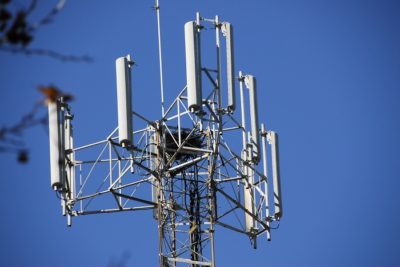 Cell tower dumps are becoming a popular tool for law enforcement, with both federal and local agencies using this controversial method to gain intelligence in high profile criminal cases.
Cell tower dumps are becoming a popular tool for law enforcement, with both federal and local agencies using this controversial method to gain intelligence in high profile criminal cases.
Once a judge issues a subpoena, mobile providers simply turn over the “dumps” of data accumulated by the specific cell phone tower in question.
Law enforcement will typically bring in their technology analysts to condense the data into a searchable database that can be used in conjunction with data mining techniques in order to gain evidence in a case. Once the search criteria is established, investigators have a string of meta-data at their disposal that is used to identity and track down a perpetrator. This meta-data often contains private information that can be directly linked to the user of the phone number in question.
Brian Owsley, a former judge in Texas and current law professor at Texas Tech University, wrote in Reason magazine that the data includes “the person’s name; address; telephone call records, including times and durations; lengths and types of services; subscriber number or identity; means and source of payment, including bank account number or credit card number; date of birth; social security number; and driver’s license number.
Learn How To Become Invisible In Today’s Surveillance State!
“Indeed,” he noted, “any of this information is available simply by presenting the telecommunications provider with a subpoena.”
In 2012, The New York Times reported that the controversial technique resulted in cell phone companies responding to more than 1.3 million inquiries for data. Cell tower dumps are increasingly being used in high profile cases — and the public has started to take note of the practice.
Take, for example, the “high-country bandits.” This team of middle-aged men would disguise themselves from head to toe in order to rob banks in the American Southwest. The bandits notoriously got away on all-terrain vehicles in each of these heists, and seemingly left no details of their identities – or so they thought. Hours before they robbed a bank, a concerned citizen called police in regards to a suspicious-looking man standing in front of the bank talking on a cell phone. Later that day, that same bank was targeted by the duo.
Law Enforcement Tips Lead to Cell Tower Dumps
This tip was all the ammunition the law enforcement agencies needed to crack the case. The agencies investigating the robberies obtained the data dumps from cell phone towers located near the banks. After creating a database using Microsoft Access, the team of investigators found a pattern within the database that suggested the bandits used or had their cell phones at each bank at the time they committed the robberies. The police connected the dots and arrested the perpetrators.
Discover The Only Way Back To True Freedom And Liberty In America…
But there were many unanswered questions. As the ACLU put it, the police “still had around 150,000 numbers left over — meaning the FBI was in possession of location information about many thousands of people who were not suspected of any wrongdoing.”
The problem with cell tower dumps is that the authorities will gain access to hundreds of thousands of data pinpoints while they are only looking for that one needle in the haystack. The questions that privacy advocates are asking include: How are law enforcement agencies using the rest of this data found in these dumps? How long is the data being retained? Who exactly has access to this data? Could data harvested for one investigation be used in other cases?
How This Impacts Freedom
Earlier this year, the ACLU stepped up to the plate and filed a Freedom of Information Act, asking the feds and local law enforcement agencies to disclose how they have used the excess data they have harvested. Katie Haas, a blogger at ACLU.org, said the FOIA request addresses four concerns:
- Most of the data harvested from cell tower dumps constitutes data from innocent people. What do law enforcement agencies do with this data?
- Do law enforcement agencies incorporate any measures that reduce the exposure of data from innocent people?
- Do people have the right to be notified when their data was collected?
- In the case of the “high-country bandits,” all that was needed was a tip about a man being on a cell phone. What is the determining factors in which a judge should execute this subpoena?
The issue, Haas argued, impacts freedom.
“When the government has information like that on such a large scale,” she wrote, “it can change the way people behave — causing them not to associate with certain groups or participate in certain activities the government may stigmatize, even when doing so is perfectly legal in a free society. Some local law enforcement agencies have already tried to monitor people at events like protests outside a world trade conference using their cell phones.”
Do you believe police should have easy access to cell phone data? Share your thoughts in the section below:
 Off The Grid News Better Ideas For Off The Grid Living
Off The Grid News Better Ideas For Off The Grid Living




